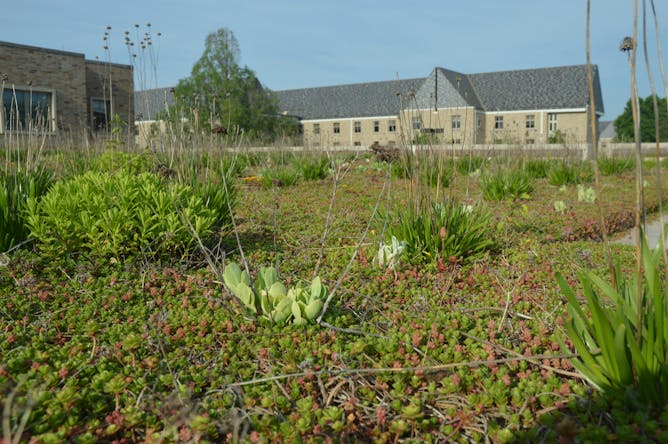
President Donald Trump, August 30, 2018.
Reuters/Kevin Lamarque
Bandy X. Lee, Yale University
Revelations about the president's behavior in a new book and an unsigned op-ed, writes a Yale psychiatrist, support what she and mental health specialists have warned: Trump is dangerously unstable.
|

Teacher turnover causes significant disruptions to the school year, researchers say.
Rob Marmion/www.shutterstock.com
Christopher Redding, University of Florida
About 16 percent of all teachers change schools or leave teaching. Often, these changes occur in the middle of the school year, which causes significant setbacks in learning, researchers say.
|

The Morris Inn on the University of Notre Dame campus has had a green roof since 2013.
Ashish Sharma
Ashish Sharma, University of Notre Dame
Taking this step may improve the quality of life for vulnerable people and reduce the amount of air conditioning they use, making their neighborhoods less prone to power outages.
|
Politics + Society
|
-
Brian Kalt, Michigan State University
If the vice president and Cabinet decide that the president cannot discharge the powers and duties of his office, they can displace him.
-
John Torpey, City University of New York
How did governments get the power to limit people's movements in the first place? A historian explains.
|
|
|
|
Science + Technology
|
-
Carol Barford, University of Wisconsin-Madison
Comparing the locations of key internet data centers and cable routes with maps of expected sea-level rise suggests it's time to shore up internet connections in the face of a changing climate.
-
Philip Farrell, University of Wisconsin-Madison
Cystic fibrosis is the most common genetic disease among Caucasians. Now scientists believe they have discovered the origin of this often lethal genetic mutation and how it spread throughout Europe.
|
|
Environment + Energy
|
-
Jennie C. Stephens, Northeastern University
Many students and professors at US colleges and universities want their schools to divest holdings in fossil fuel companies, but it's a hard sell for school administrators.
-
Anne Lusk, Harvard University
Many US cities are investing in bike infrastructure and shade trees. Properly located, these additions can make streets cooler, cleaner and safer for all users – even those who drive.
|
|
From our international editions
|
-
Richard Vokes, University of Western Australia; Sam Wilkins, University of Oxford
Whether the enduring face of this new politics is Bobi Wine or someone else, Ugandan politics is clearly changing
-
Susan Gourvenec, University of Southampton
We know how to stop solid minerals converting to a liquid state mid voyage – so why does it still happen?
-
Alexander Holden, University of Sydney
There are a few options for whitening your teeth, but they're not all equally safe.
|
|
Today’s chart
|
-

 |
Lacey Wallace
Pennsylvania State University
|
| |